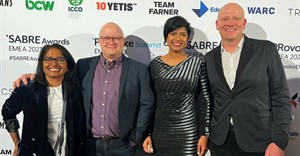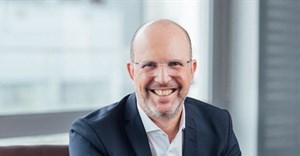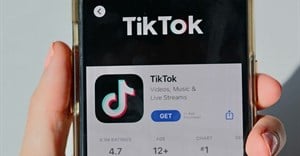Trending




 Sabre EMEA 2024 Awards: Razor PR, Retroviral top SA agenciesDanette Breitenbach
Sabre EMEA 2024 Awards: Razor PR, Retroviral top SA agenciesDanette Breitenbach
Elections 2024
Jobs
- Coordinator - Marketing and Communications Johannesburg
- Printing Business Manager Polokwane
- Copywriter Johannesburg
- Copywriter Cape Town
- Account Manager, Producer and Field Producer Parkhurst
- Production Manager Johannesburg
Business is too timid with its PR

Find out for yourself by analysing national media coverage (press, radio and TV) over a period of at least six months.
You’d be forgiven for concluding that, with few exceptions, the entire South African corporate sector had gone into hiding and left the field wide open to third parties to drive the story on their industries. These third parties range from politicians and pressure groups, to ordinary citizens and journalists looking for their next scoop.
Of course, we live in a free society, and these parties have a legitimate right to put their views across; indeed, they’re a vital contribution to public debate. But when these views are the only ones that get ink and airtime, it can distort the image people have of a company or industry. This then ends up becoming “the truth”, and starts to shape public policy, legislation and consumer attitudes.
Take mining.
Leave it in the ground
A common view – particularly in African countries – is that mines needlessly strip the earth of natural resources, pollute the environment and destroy communities. Mining companies don’t pay their taxes. They make massive profits that leave the host country worse off.
An alternative view is that mining provides metals for homes, hospitals, cars, airplanes, computers, cellphones, medical equipment, satellites and a thousand other things that keep society functioning. Because they are a source of employment and disposable income, mines can transform once poor communities. Mines account for a significant slice of government tax revenue in many countries.
The truth invariably lies in between and is very much dependent on which mine is in the spotlight. Mining companies are neither angels nor villains, and a balanced picture can only emerge when both sides of the story get a hearing.
Better under the mattress
Banking is another industry with a one-sided public narrative. Fat-cat bankers rip the public off, take their money, give lousy service, charge high fees and exorbitant interest rates, and make massive profits. Hence jokes like: Why don’t sharks attack bankers? Professional courtesy. We all have bank accounts, so we know there’s some truth to every single one of these accusations.
But another view is that banking is a complex balancing act of risk and reward. It requires huge levels of capital and serious technological sophistication. Banks allow us to borrow money to buy cars and homes, and invest our savings; they allow businesses large and small to grow; they fund roads, bridges and public works; indeed, they hold the entire financial system together. Yes, banks make big profits in good times, but so do countless other industries.
Banking, mining, insurance, manufacturing, retail, food, etc – every industry has a public narrative; and it is increasingly international in scope. But who is driving that narrative? And how balanced is it? It’s something we, as PR professionals, need to be very concerned about. Once a one-sided narrative has taken hold in the public consciousness, it becomes very difficult to shift.
And don’t for a minute think that the occasional opinion piece is the answer. The only way to change a one-sided narrative is to establish a new one – and that requires a sustained, long-term thought-leadership campaign.
Jennifer Westacott, CEO of the Business Council of Australia, caught the scale – and the global nature – of the challenge in a speech to the CFO Forum in May 2018:
I want us to get on the offensive and put an end to the false narrative that business has no contribution to make to society,” she said. “We are the wealth creators. The job makers. We pay people’s wages. We have to be willing to stand up and tell that story.












